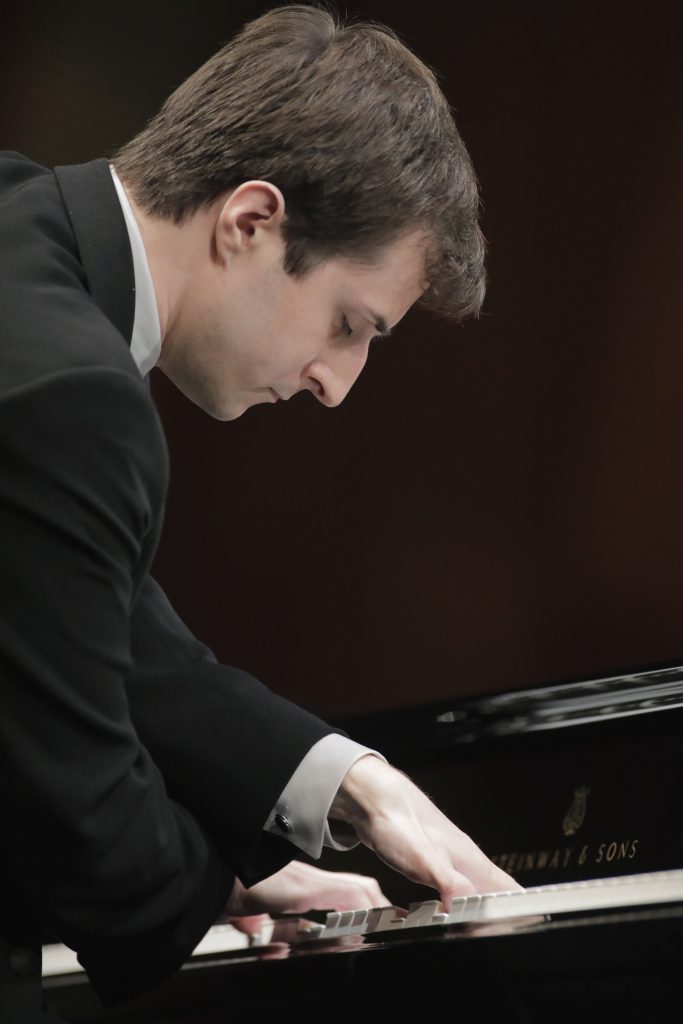Cliburn semifinal: Round 8

Kenneth Broberg (U.S.) performed Monday during Round 8 of the Cliburn Competition. Photo: Ralph Lauer
Beethoven’s mostly cheerful Sonata No.4 in E-flat opened the final solo recital session of the semifinal round Monday afternoon, as Italian pianist Leonardo Pierdominico combined a generous foot on the pedal and a light but well-projected touch on the keyboard to produce an appealing sfumato effect that still managed to capture Beethovenian energy. Pierdominico carried this strategy throughout the Sonata into the patiently reflective Largo, the almost Mozartian quasi-menuet of the third movement, and the lively closing Rondo, with its whispered final moments.
He followed up with the high-risk strategy of programing all four Chopin Ballades—works which every jury-member (and a large portion of the audience) knows by heart. Evaluated purely as a concert event, the performance was entirely convincing: Pierdominico lavished the same combination of suave melodic line and controlled energy as in the Beethoven, managing to land successfully in the frantic coda sections of each of these compact masterpieces. Best of all, hearing all four of the Ballades in immediate sequence reminded that Chopin was, indeed, a genius of the first rank.
American pianist Kenneth Broberg—roots in Minnesota and training in Houston and Kansas City—produced two romantic-era monuments for his program. The four Impromptus of Schubert, D. 899, present the almost hidden challenge of extended intense lyricism and some almost unnoticeable but very real technical challenges. Quiet but insistent (and therefore murderously difficult) repeated eighth notes decorate the first of the four, and an equally insistent and quietly demanding accompaniment pattern floats through the third; a featherlight descending arpeggio in which every note must be exactly in place characterizes the fourth. Broberg met and matched all, along with a flowing lyricism.
Broberg closed his bid for a slot by climbing the Everest of the romantic piano repertoire, Liszt’s Sonata in B minor. Here the technical challenges—In the form of roaring arpeggios, floods of octaves, and glittering filigree passagework—are more obvious, though the intellectual task of holding this wide-ranging structure is equally daunting. Once again, Broberg made his case impressively.